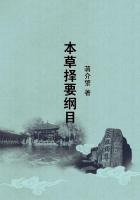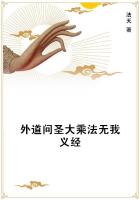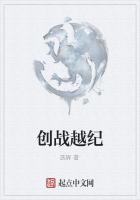Soon after dark they heard the swing of the garden gate, the tramp of rapid footsteps, and the high-pitched voices of excited men. The door was flung wide. The Senora forgot that it was cold. She went with outstretched arms to meet her husband. Dare and Luis were with him. They were black with the smoke of battle. Their clothing was torn and bloodstained; the awful light of the fierce struggle was still upon their faces. But they walked like heroes, and the glory of the deeds they had done crowned with its humanity, made them appear to the women that loved them but a little lower than the angels.
Doctor Worth held his wife close to his heart and kissed her tears of joy away, and murmured upon her lips the tenderest words a woman ever hears--the words a man never perfectly learns till he has loved his wife through a quarter of a century of change, and sorrow, and anxiety. And what could Antonia give Dare but the embrace, the kiss, the sweet whispers of love and pride, which were the spontaneous outcome of both hearts?
There was a moment's hesitation on the part of Luis and Isabel. The traditions of caste and country, the social bonds of centuries, held them. But Isabel snapped them asunder.
She looked at Luis. His eyes were alight with love for her, his handsome face was transfigured with the nobility of the emotions that possessed him. In spite of his disordered dress, he was incomparably handsome. When he said, "Angel mio!" and bent to kiss her hand, she lifted her lovely face to his, she put her arms around his neck, she cried softly on his breast, whispering sweet little diminutives of affection and pride. Such hours as followed are very rare in this life; and they are nearly always bought with a great price--paid for in advance with sorrow and anxiety, or earned by such faithful watching and patient waiting as touches the very citadel of life.
The men were hungry; they had eaten nothing all day. How delicious was their meal! How happy and merry it made the Senora, and Antonia, and Isabel, to see them empty dish after dish; to see their unaffected enjoyment of the warm room, and bright fire, of their after-dinner coffee and tobacco. There was only one drawback to the joy of the reunion--the absence of Jack.
"His disappointment will be greater than ours," said Jack's father. "To be present at the freeing of his native city, and to bring his first laurels to his mother, was the brightest dream Jack had. But Jack is a fine rider, and is not a very fine marksman; so it was decided to send him with Houston to the Convention. We expected him back before the attack on the city began. Indeed, we were waiting for orders from the Convention to undertake it."
"Then you fought without orders, father?"
"Well, yes, Antonia--in a way. Delays in war are as dangerous as in love. We were surrounded by dragoons, who scoured the country in every direction to prevent our foraging. San Antonio HAD to be taken. Soon done was well done. On the third of December Colonel Milam stepped in front of the ranks, and asked if two hundred of the men would go with him and storm the city. The whole eleven hundred stepped forward, and gave him their hands and their word. From them two hundred of the finest marksmen were selected."
"I have to say that was a great scene, mi Roberto."
"The greater for its calmness, I think. There was no shouting, no hurrahing, no obvious enthusiasm. It was the ****** assertion of serious men determined to carry out their object."
"And you stormed San Antonio with two hundred men, father?"
"But every man was a picked man. A Mexican could not show his head above the ramparts and live. We had no powder and ball to waste; and I doubt if a single ball missed its aim."
"A Mexican is like a Highland Scot in one respect," said Dare;" he fights best with steel. They are good cavalry soldiers."
"There are no finer cavalry in the world than the horsemen from Santa Fe, Dare. But with powder and ball Mexicans trust entirely to luck; and luck is nowhere against Kentucky sharpshooters. Their balls very seldom reached us, though we were close to the ramparts; and we gathered them up by thousands, and sent them back with our double-Dupont powder. THEN they did damage enough. In fact, we have taken the Alamo with Mexican balls."
"Under what flag did you fight, Roberto?"
"Under the Mexican republican flag of eighteen twenty-four; but indeed, Maria, I do not think we had one in the camp. We were destitute of all the trappings of war--we had no uniforms, no music, no flags, no positive military discipline.
But we had one heart and mind, and one object in view; and this four days' fight has shown what men can do, who are moved by a single, grand idea."















